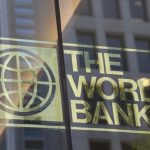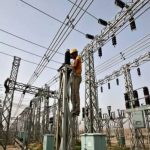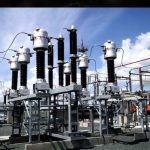World Bank said unreliable power supply in Nigeria has caused a huge economic losses, estimated at N10.1tn annually.
The bank said, “Ensuring access to reliable electricity supply is important for poverty alleviation.

With about 97 million people lacking access to grid electricity, the average annual per capita electricity consumption of Nigeria is 147 kW/h, which is a fifth of the average low middle-income country consumption.
World Bank said unreliable power supply in Nigeria has caused a huge economic losses, estimated at N10.1tn annually.
The bank said, “Ensuring access to reliable electricity supply is important for poverty alleviation.

With about 97 million people lacking access to grid electricity, the average annual per capita electricity consumption of Nigeria is 147 kW/h, which is a fifth of the average low middle-income country consumption.
World Bank said unreliable power supply in Nigeria has caused a huge economic losses, estimated at N10.1tn annually.
The bank said, “Ensuring access to reliable electricity supply is important for poverty alleviation.

With about 97 million people lacking access to grid electricity, the average annual per capita electricity consumption of Nigeria is 147 kW/h, which is a fifth of the average low middle-income country consumption.
World Bank said unreliable power supply in Nigeria has caused a huge economic losses, estimated at N10.1tn annually.
The bank said, “Ensuring access to reliable electricity supply is important for poverty alleviation.

With about 97 million people lacking access to grid electricity, the average annual per capita electricity consumption of Nigeria is 147 kW/h, which is a fifth of the average low middle-income country consumption.
World Bank said unreliable power supply in Nigeria has caused a huge economic losses, estimated at N10.1tn annually.
The bank said, “Ensuring access to reliable electricity supply is important for poverty alleviation.

With about 97 million people lacking access to grid electricity, the average annual per capita electricity consumption of Nigeria is 147 kW/h, which is a fifth of the average low middle-income country consumption.
World Bank said unreliable power supply in Nigeria has caused a huge economic losses, estimated at N10.1tn annually.
The bank said, “Ensuring access to reliable electricity supply is important for poverty alleviation.

With about 97 million people lacking access to grid electricity, the average annual per capita electricity consumption of Nigeria is 147 kW/h, which is a fifth of the average low middle-income country consumption.
World Bank said unreliable power supply in Nigeria has caused a huge economic losses, estimated at N10.1tn annually.
The bank said, “Ensuring access to reliable electricity supply is important for poverty alleviation.

With about 97 million people lacking access to grid electricity, the average annual per capita electricity consumption of Nigeria is 147 kW/h, which is a fifth of the average low middle-income country consumption.
World Bank said unreliable power supply in Nigeria has caused a huge economic losses, estimated at N10.1tn annually.
The bank said, “Ensuring access to reliable electricity supply is important for poverty alleviation.

With about 97 million people lacking access to grid electricity, the average annual per capita electricity consumption of Nigeria is 147 kW/h, which is a fifth of the average low middle-income country consumption.














